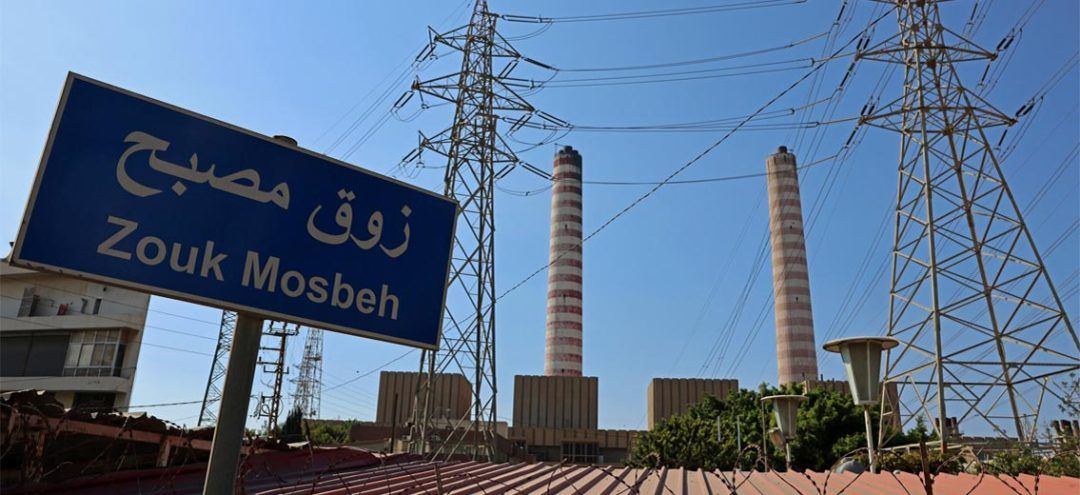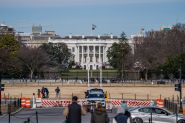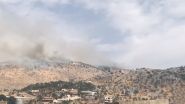
©JOSEPH EID/AFP
In 2020, while Lebanese citizens were still reeling from the devastating Beirut port explosion, alarming news surfaced about the presence of ammonium nitrate at the Zouk Mikael thermal plant factory in Keserwan, Mount Lebanon. This revelation sparked fears of another possible deadly catastrophe.
Four years later, no official has been held accountable for the Beirut port explosion. The investigation was amputated, and the state’s neglect, under the pretense of “it is not under my responsibility,” gives a sense of déjà vu in the Zouk Mikael case. Today, the fear of hazardous products being stocked in the Zouk factory is exacerbated by the ongoing conflict between Hezbollah and the Israeli army in southern Lebanon.
The Mayor of Zouk Mikael, Joseph Baaino, told This is Beirut that there is no ammonium nitrate in the facility. However, he pointed out that several materials are being stored there and, if kept close to each other, could be dangerous. Moreover, some of these products have expired.
Baaino stated that these materials pose a risk of explosion due to sabotage, warfare or heat, estimating that 50 to 60 tons are stored. He explained that these materials, used by the electricity company, have been a concern since the Beirut port explosion four years ago. Consequently, they alerted the army directorate, the Electricité du Liban (EDL) and relevant parties. To that effect, the Lebanese army sent the ammunition directorate to plan the removal of the materials to send them abroad for destruction. However, “we discovered that the materials are still here,” Baaino said.
The mayor assured that several “positive” correspondences between them and the ministries of Defense, Interior, the Prime Minister’s office and the Lebanese army have been ongoing to address the danger and seek removal. Baaino pointed out that he thought the materials were removed, which is “why he did not follow through.” However, when caretaker Minister of Interior Bassam Mawlawi revealed two months ago that dangerous materials were still stocked there, they discovered complications in their removal.
For his part, the Head of the Public Procurement Authority, Jean Ellieh, told This is Beirut that “the law mandates the immediate removal of hazardous materials without delay.” The Public Procurement Authority communicated to the Ministry of Energy and the media that if the materials are hazardous and cannot wait for the tender process, which takes time, the law requires immediate removal. “There are legal mechanisms for direct contracting at reasonable prices to ensure the prompt removal of these materials,” he added.
Ellieh insisted that although this isn't within the Public Procurement Authority's direct expertise, a statement was issued to the Ministry of Energy to address the hazard.
Lebanon's Electricité du Liban (EDL) reassured the public on Wednesday that the chemicals at the Zouk Mikael thermal plant, as assessed by security authorities and the German company CombiLift, are non-flammable and non-explosive, thus posing no public safety risk. These clarifications were previously stated in March and April 2022. EDL asked the Municipality of Zouk Mikael to provide any scientific evidence proving the danger of these chemicals, but has not received a response yet.
On Friday, May 31 at 7 PM, a demonstration is scheduled by Zouk residents to ask for the immediate removal of all dangerous chemicals, “which could lead to a catastrophic outcome.” The President of the Zouk Residents' Association, Paul Zeitoun, shared the public’s concern about preventing a disaster that could affect the region from Dora to Jbeil. “A potential escalation could be scheduled should there be no response from authorities,” he told This is Beirut. He added, “Our children, our families, all of us are in danger. We must unite and stand together to achieve our goal of removing the danger from the entire Keserwan area.” However, he expressed surprise at the sudden change in stance from the mayor of Zouk Mikael, who stated that there are no dangerous chemicals, “I wonder what caused this sudden change in opinion.”
“Despite the mayor's recent statement, the association believes there is a significant threat,” he added. The association emphasizes the need for unity and decisive action to prevent a catastrophe similar to the Beirut port explosion.
While waiting for the concerned parties to assume their responsibilities, and with the belief that another catastrophe can be prevented, the hope is that a shred of conscience will prompt officials to act quickly.
Read more




Comments